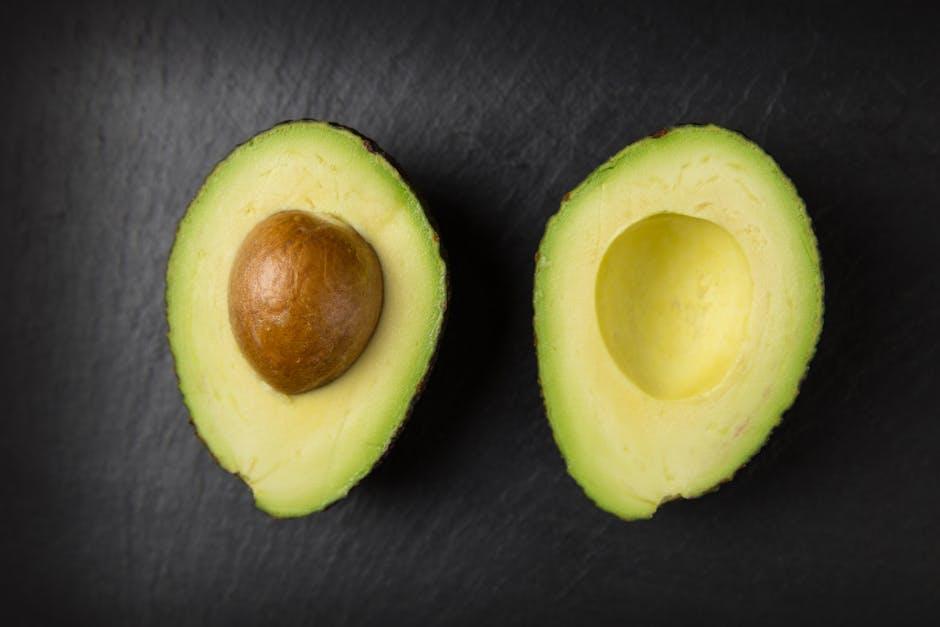In a world where diet fads come and go like the seasons, and every week seems to bring a new villain to the nutritional forefront, it’s easy to get lost in the labyrinth of dietary advice. One day, carbohydrates are the enemy; the next, it’s all about cutting out sugar. But amidst this ever-changing landscape, there’s a group of nutrients that often gets a bad rap yet plays a vital role in our well-being: healthy fats. These unsung heroes of the culinary world are not just about adding flavor to your meals—they are essential for your body’s function and overall health. So, let’s embark on a journey to uncover the truth about healthy fats, dispelling myths and shining a light on their indispensable benefits. Whether you’re a seasoned health enthusiast or just starting to navigate the maze of nutrition, this guide will equip you with the knowledge you need to make informed choices about the fats you consume. Welcome to “.”
Understanding the Role of Healthy Fats in Your Body
Healthy fats are essential for numerous bodily functions, acting as building blocks for cell membranes, and playing a crucial role in hormone production. They also help in the absorption of fat-soluble vitamins such as A, D, E, and K. Without these nutrients, our bodies would struggle to maintain optimal health.
- Monounsaturated fats: Found in olive oil, avocados, and nuts, these fats can help reduce bad cholesterol levels, lowering your risk of heart disease and stroke.
- Polyunsaturated fats: Including omega-3 and omega-6 fatty acids, these are vital for brain function and cell growth. Sources include fish, flaxseeds, and walnuts.
- Omega-3 fatty acids: Known for their anti-inflammatory properties, these are particularly beneficial for heart health and can be found in fatty fish like salmon, chia seeds, and hemp seeds.
Incorporating these healthy fats into your diet can lead to improved brain function, better heart health, and enhanced overall well-being. Remember, not all fats are created equal, so it’s essential to focus on those that provide the most health benefits.

Common Myths and Misconceptions About Dietary Fats
Despite the growing awareness about the benefits of healthy fats, several myths and misconceptions still persist. Here are a few of the most common ones:
- All fats are bad for you: Not all fats are created equal. While trans fats and excessive saturated fats can be harmful, unsaturated fats, including monounsaturated and polyunsaturated fats, are essential for heart health and overall well-being.
- Fat-free diets are the healthiest: Completely eliminating fats from your diet can lead to nutrient deficiencies and negatively impact your body’s ability to absorb fat-soluble vitamins like A, D, E, and K. Healthy fats are necessary for brain function, hormone production, and maintaining cell membranes.
- Eating fat makes you fat: Weight gain is more closely related to an imbalance of calories consumed versus calories burned, rather than fat consumption alone. Healthy fats can actually help regulate your appetite and support weight management by making you feel fuller for longer periods.

Identifying and Incorporating Good Fats into Your Meals
When it comes to enhancing your diet with beneficial fats, it’s essential to distinguish between the different types and understand how to seamlessly integrate them into your meals. Healthy fats are pivotal for brain function, hormone production, and cell health. Here are some key sources to consider:
- Avocados: Rich in monounsaturated fats, avocados can be added to salads, sandwiches, or even smoothies for a creamy texture.
- Nuts and Seeds: Almonds, chia seeds, and flaxseeds are excellent sources of omega-3 fatty acids. Sprinkle them on your yogurt or oatmeal for a nutrient boost.
- Olive Oil: A staple in Mediterranean diets, olive oil is perfect for salad dressings or drizzling over roasted vegetables.
- Fatty Fish: Salmon, mackerel, and sardines are packed with omega-3s. Incorporate them into your weekly meal plan to support heart health.
- Coconut Oil: Ideal for cooking at high temperatures, coconut oil adds a subtle flavor to stir-fries and baked goods.
By thoughtfully incorporating these nutrient-dense options, you can ensure that your diet supports overall well-being without compromising on flavor or variety.

Balancing Your Fat Intake: Practical Tips and Recommendations
Achieving the right balance of fats in your diet can be simpler than you think. Start by incorporating a variety of healthy fats into your meals. This can be done by including foods such as:
- Avocados
- Nuts and seeds
- Olive oil
- Fatty fish like salmon and mackerel
These sources provide monounsaturated and polyunsaturated fats which are essential for heart health. To maintain balance, it’s crucial to limit your intake of saturated fats found in foods like butter, cheese, and red meat. Instead, opt for lean proteins and plant-based alternatives whenever possible.





